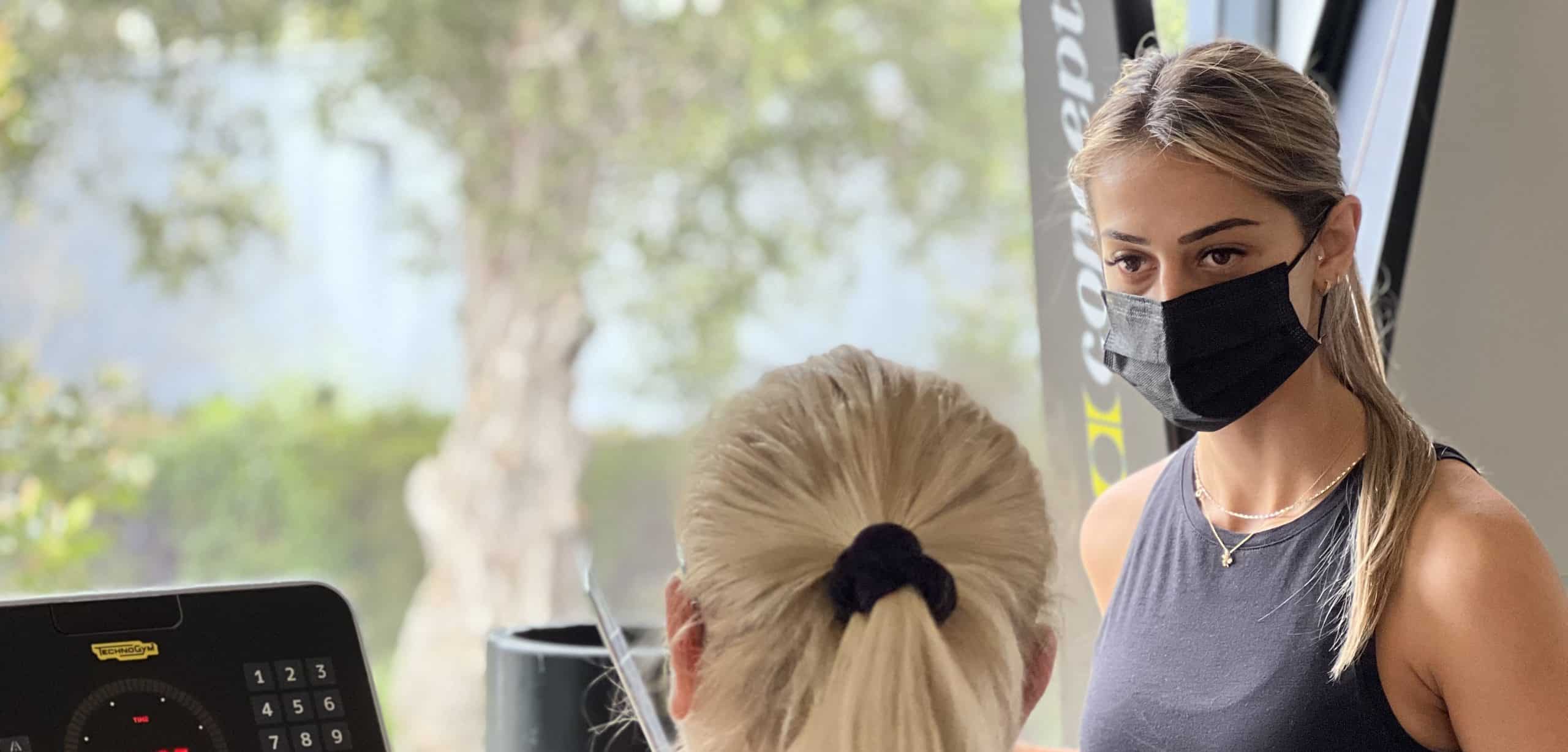Meet Olivia Adoncello, Exercise Physiologist at Brellah Medical Centre.
Meet Olivia Adoncello, Exercise Physiologist at Brellah Medical Centre. Olivia works with clients on an individual basis, and also runs group sessions in the Brellah Metabolic Health Program, Brellah Falls Prevention Program and Brellah Thrive Cancer Care program.
Olivia explains here how she helps treat patients with chronic conditions.
1. When do we need to see an Exercise Physiologist?
When you have a medical condition, injury or illness that requires professional exercise advice as a means of treatment, an Exercise Physiologist can guide you through the most appropriate forms of movement.
Some of these conditions include:
- Post-surgery rehab to improve strength and function eg hip/knee replacement
- Cardiovascular, pulmonary, metabolic, neurological and musculoskeletal disease (including arthritis, osteoporosis and musculoskeletal issues)
- Depression and other mental health conditions
- Cancer rehab
- Advice on lifestyle modification to improve health status.
2. In what ways do Exercise Physiologists help their patients?
- By helping to manage chronic conditions that require long-term care
- By improving the individual’s education regarding their body and their bodily movements/functioning
- With pain management strategies
- Keeping motivation levels high
- For long-term accountability and overall progression with their health and fitness goals.
3. How do Exercise Physiologists differ from physiotherapists?
Physiotherapists diagnose injuries and have a more hands-on approach to treatment (manual therapy).
EPs only use exercise as their means of medicine and are usually for more long-term management.
EPs also use behavioural change techniques and focus on improving overall quality of life for their patients.
4. What’s an example of how you’ve helped clients?
A client of mine is 16 years old and had leukaemia as a child. All the effects of radiation and chemo left him with spinal compression and other postural issues. He was training with me to prepare him for a surgery in order to realign his spine. In the time working with him (1 year) he has managed to avoid this surgery!
5. What do you enjoy about being an Exercise Physiologist?
Watching my patients go through their rehab or their program, and achieve their goals, inspires me to help more people. The more complex cases teach me problem-solving, which inspires me to continually learn – that’s what this industry is all about!!
We are all different people with different needs and abilities. There is no such thing as ‘one size fits all’ – and there are always improvements that can be made.
This inspires me to work closely with my patients to get to the bottom of their concerns/injuries etc, which gives me incredible relationships with these people and that is why I love what I do. It’s extremely rewarding!!
Olivia is an Accredited Exercise Physiologist and Exercise & Sport Scientist. She has been working in the health and fitness industry for six years and has experience in private practice, group classes, home visits, personal training and gymnastics coaching. She has provided care and treatment to a vast range of clientele, including those with cognitive impairment, neurological conditions, cardio-metabolic conditions, musculoskeletal injuries as well as over 65s, pre and post-operative patients and cancer patients.
This article is for information purposes only. It does not constitute medical advice, is general in nature, not tailored to your personal circumstances and you should seek your own medical advice from an independent medical professional with regards to what options are best for you.
